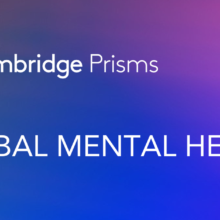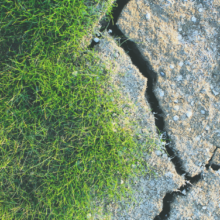The Cambridge Prisms series will accelerate discovery and progress research by supporting the formation of new collaborative networks to address real-world challenges with a truly interdisciplinary ethos. Cambridge Prisms serve to facilitate conversation and debate of the latest developments and perspectives across disciplines and research communities.
All journals in the series are fully open access and operate under open peer review in full transparency to further accelerate discovery.
The journal series currently consists of (given in order of launch date):
Coastal Futures
Precision Medicine
Global Mental Health
Extinction
Plastics
Water
Drylands
Carbon Technologies
Energy Transitions
Prior to launch, each journal has invited a number of world leading researchers to review the latest interdisciplinary solution-focused research within their area of expertise. This content is currently being published and will fully populate and explore each journal’s topic map. All journals open to unsolicited submissions at launch.
If you wish to discuss Cambridge Prisms or your interdisciplinary research further, please contact us at prisms@cambridge.org.
Introducing Cambridge Prisms
Cambridge Prisms blog

-
Early-career researchers sought for mentorship programme on prestigious mental health journal
- 30 January 2025,
- Cambridge Prisms: Global Mental Health has launched a mentorship programme offering young people the chance to spend a year on the journal’s editorial board.…...

-
Cambridge Prisms: Drylands – understanding and protecting the world’s most fragile landscapes
- 24 October 2024,
- This week sees the launch of Cambridge Prisms: Drylands – a multi-disciplinary journal aimed at understanding and protecting the world’s most arid landscapes.These…...

-
Global Plastics Treaty: production, pollution and politics
- 22 April 2024,
- The revised draft global plastics treaty will be discussed at the 4th meeting of the Intergovernmental Negotiating Committee, which will be held in Ottawa from...
